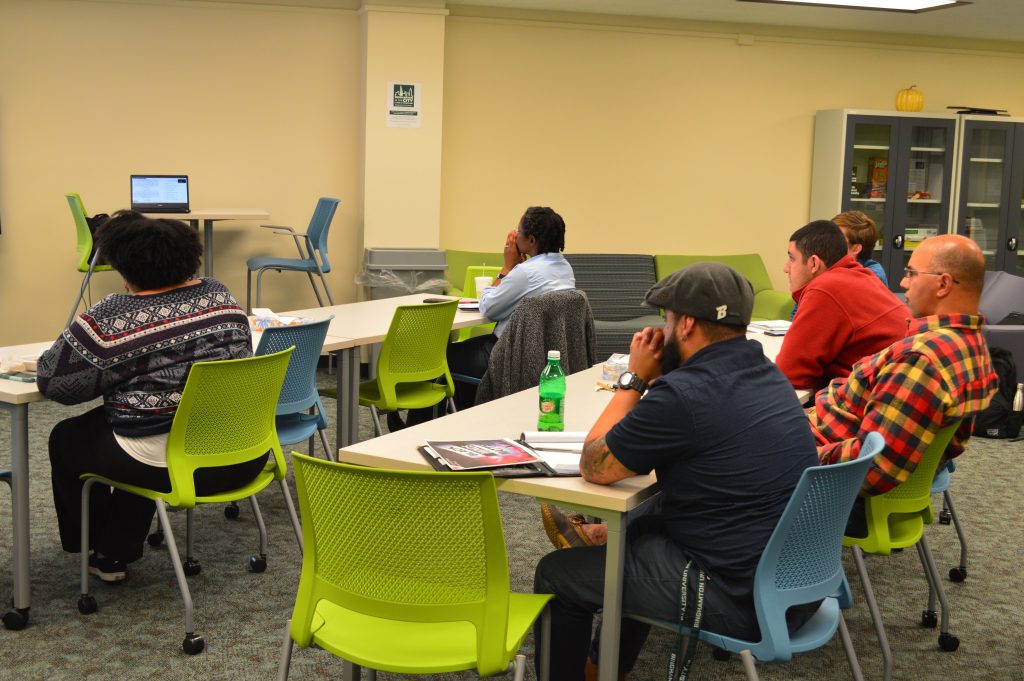
To address challenges faced by black men and boys in education, Binghamton University is streaming “Black Minds Matter,” an eight-week video lecture series taught by professors at San Diego State University (SDSU). BU’s Multicultural Resource Center (MRC), which aims to spread cultural awareness on campus, hosted the first talk on Monday, Oct. 23.
According to the American Council on Education, 29.9 percent of Americans aged 25 to 29 had obtained a bachelor’s degree in 2009, compared to 18 percent of African Americans of the same age. In addition, according to the Community College Equity Assessment Lab, a national research laboratory at SDSU, black students are 140 percent more likely to feel that teachers don’t appreciate them.
Tanyah Barnes, the interim assistant director of the MRC, said the course is designed to bring attention to statistics like these.
“The black male population, historically, is underrepresented in a collegiate environment and education,” Barnes said. “So, the course is really to learn and explore men and boys in education.”
The course is taught by Luke Wood, distinguished professor of community college leadership at SDSU. The series hopes to re-educate students, faculty and staff and make them aware of their own racial biases, Wood said.
“If you think about the earliest experiences that you have in seeing or engaging [with] black boys and men, those probably influence the way you see them now,” Wood said. “Being biased doesn’t make you bad. Not doing anything about it is what makes you bad.”
The course also features guest speakers, including Frank Harris III, professor of postsecondary education at SDSU. Harris said the course is focused on both gender and race instead of prioritizing one over the other.
“The social construction of masculinity is so powerful and prevalent in the lives of boys,” Harris said. “It really, in many ways, plays a huge role in shaping not only their identities as people, but their identities as learners.”
In order to accomplish these goals, the series asks its participants to look to both society and themselves to see the issues present for black men throughout their education. According to Barnes, this type of guided reflection could help prevent future incidents similar to the racist graffiti discovered in Endicott Hall of Newing College, Digman Hall of Dickinson Community and Onondaga Hall of College-in-the-Woods last month.
Karima Legette, senior academic counselor for the Educational Opportunity Program, wrote in an email that although the course lays out a clear path to help resolve these incidents, the University needs to make further efforts to address underlying issues.
“We need to welcome these students to educational institutions, helping them to feel that they belong there,” Legette wrote. “There are too many verbal and nonverbal messages that tell them the opposite.”
The series will be hosted each Monday for the next seven weeks from 7:30 to 9 p.m. in the Multicultural Resource Center lounge, LS-G500.


